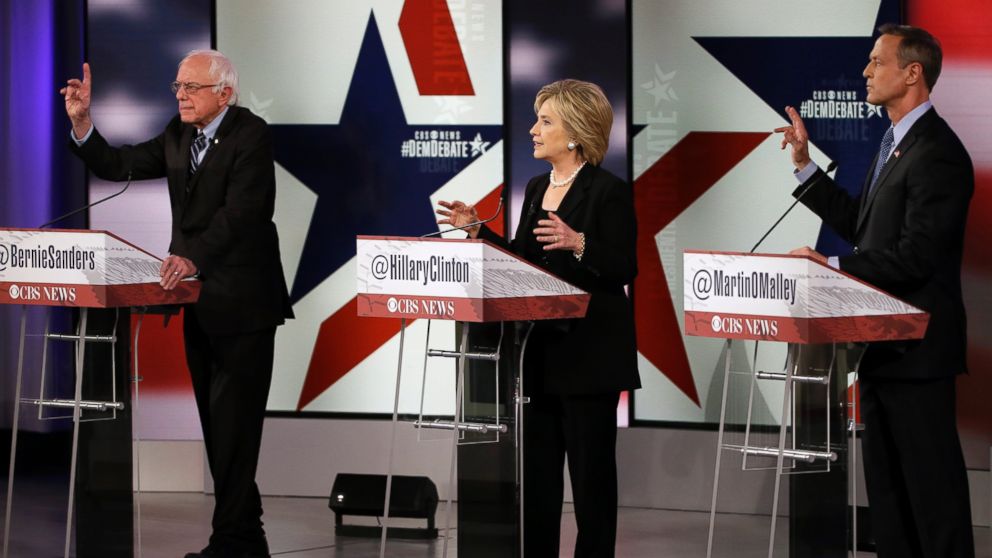Democratic Presidential Candidates Engage in War of Words Over Fighting ISIS
A heated debate ensued over the relationship between terrorism and Islam.

— -- In a debate that began with a moment of silence for the victims of Friday’s terrorist attacks in Paris, which claimed the lives of 129 people, the three Democratic candidates for president sought to lay out their plans for confronting ISIS.
“I think that we have to look at ISIS as the leading threat of an international terror network,” former Secretary of State Hillary Clinton said. “It cannot be contained. It must be defeated.”
In saying so, Clinton offered a contrast to President Obama’s assertion in an interview with ABC News’ George Stephanopoulos before Friday’s attacks took place that “we have contained” ISIS.
Clinton, former Maryland Gov. Martin O’Malley and independent Vermont Sen. Bernie Sanders found themselves at odds over whether taking on the terrorist group should be America’s fight.
“It cannot be an American fight,” Clinton said. “And I think what the president has consistently said, which I agree with, is that we will support those who take the fight to ISIS.”
O’Malley disagreed.
“This actually is America's fight,” he said. “It cannot solely be America's fight. America is best when we work in collaboration with our allies.”
Sanders, who has emerged as Clinton’s most vexing adversary, also took the opportunity to draw a contrast with the former secretary of state.
“I think she said something like the bulk of the responsibility is not ours,” he said. “Well, in fact, I would argue that the disastrous invasion of Iraq, something that I strongly opposed, has unraveled the region completely and led to the rise of al Qaeda and to ISIS.
“Now, in fact, what we have got to do -- and I think there is widespread agreement here -- is the United States cannot do it alone. What we need to do is lead an international coalition which includes very significantly the Muslim nations in that region who are going to have to fight and defend their way of life.”
But the specific role America would take, whether it be leading or directing from the sidelines, was blurred.
Instead, there was discussion on how America found itself in this situation, with Clinton saying “we abided by the agreement that George W. Bush made with the Iraqis to leave by 2011,” but placed the blame on former Iraqi Prime Minister Nouri al-Maliki who “set about decimating it.”
At one point, a heated discussion ensued over the relationship between terrorism and Islam.
"I don't think we're at war with Islam. I don't think we're at war with all Muslims,” Clinton said. “I think we're at war with jihadists.”
Sanders wasted no time skipping this discussion of semantics. "I don't think the term is what's important. What is important to understand is we have organizations, whether it is ISIS or al Qaeda, who do believe we should go back several thousand years."
Clinton and O’Malley also offered their takes on how many Syrian refugees should be allowed into the United States and under what circumstances.
Clinton argued that screening Syrian refugees is the “number one requirement,” and said that “only if we have as careful a screening and vetting process as we can imagine” should the United States raise the number of refugees allowed into the country to 65,000.




